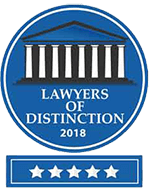Often, companies think that because they have a compliance program in place that will deter and prevent employee misconduct. Unfortunately, that is not the case and policies can inadvertently encourage misconduct when the corporate culture has conflicting incentives.
Eight ways employees rationalize bad behavior
Todd Haugh, an assistant professor of business law and ethics at Indiana University’s Kelley School of Business, listed out how employees rationalize their decisions.
- Denying responsibility: The employee claims they were acting under orders.
- Denying injury: The employee excuses their behavior by rationalizing that no harm was done.
- Denying the victim: The employee argues that the victim deserved it. Also used when a clear victim is not easy to indentify in cases such as fraud.
- Condemning the condemners: The employee tries to turn the tables on their accuser and complains about selective enforcement.
- Appealing to higher loyalties: The employee claims their decision was in the best interest of the company.
- Using a ledger metaphor: The employee attempts to use past positive behavior to outweigh their negative actions.
- Claiming entitlement: The employee rationalizes their decision by claiming they deserve the fruits of their labor.
- Claiming relative acceptability or normality: The employee claims they were acting in accordance with the company culture.
Integrity is adaptable; it ties back to the good people doing bad things paradox. Motivators to make an unethical decision can include money, a need to fit in or power. When an employee is tempted to make an unethical decision, they may use a reframing technique to present their decision a different way, leading to rationalization.
Corporations often spend thousands of dollars on their compliance program, from inception to creation. The programs focus on curbing bad behavior, but fail to understand the rationalization behind employee decision making. Promoting and enforcing compliance is where most organizations fail.
Does your organization have a compliance manual? More importantly, does it promote an ethical corporate culture?




